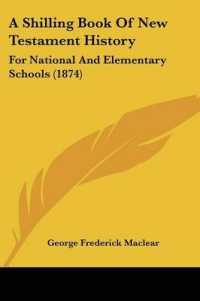Full Description
Questions of the recognition and enforcement of foreign judgments are deserving of study in their own right, and not as an appendage to accounts of (adjudicatory) jurisdiction and choice of law. Nothing is more revealing of the spirit with which a given legal order approaches the wider subject area of the conflict of laws than the approach that it takes in its reception of exercises of adjudicatory authority by judges of other legal orders in their efforts to secure the just and peaceful resolution of disputes. From the 17th century onwards, influential works on the law of nature shaped the law on this subject. These accounts sought to identify and explain fundamental principles governing legal relations between human beings and the political societies formed for their protection and fulfilment. The influence of natural law thinking waned in the 19th century as 'State-centred' accounts of the subject and of international law more generally came to the fore. This study traces that historical path, and argues that the natural law toolbox remains valuable today, in understanding the rules that operate in this sphere and in refining (renaturalising) them as mechanisms to administer justice.








